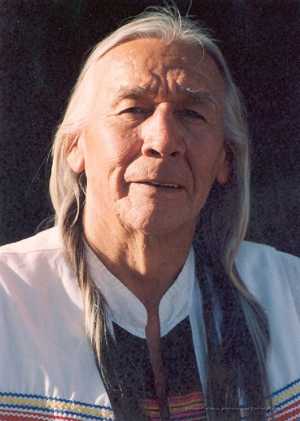Red Crow Westerman honors the ‘Man in Black’ with new CDFloyd talks about his past activism:
Westerman, who is Lakota, is an accomplished musician and partially from the AIM movement came the album and song ‘Custer Died for your sins’ inspired from the book and same title that was written by Vine Deloria, Jr. “Custer died for your sins is about the Indian point of view,” says Westerman about the album. “Indian people relate to it more than any other album. Indian people tell me that, but there are so many issues, even this album doesn’t cover it all.” While living in Denver in 1970, Westerman was the President of the White Buffalo Council. He and Deloria became friends. “He (Deloria) had written the book,” says Westerman. “I was singing in lounges and in the areas around Denver, we would talk, and he told me “you know, there ought to be a song about anthropologists, a song about missionaries, a song about the freedom of religion for Indians.”
Westerman says he was expressing this to let everyone know about the experiences Native Americans were facing during the time of the late 60’s and early 70’s. “My songs expressed the Indian point of view, and Indian issues, situations were getting worse and worse. “Our treaty rights are human rights, we were creating a national liberation front, and it’s still going on.”And his current project:
Westerman has produced a CD titled ‘A tribute to Johnny Cash’. Westerman says that he met the legendary ‘Man in Black’ performer at an AIM rally and other benefits such as for the environment. The likes of Jackson Browne, Bonnie Raitt, Kris Kristofferson and Willie Nelson were a part of the many concerts where Westerman and Cash performed.
“We exchanged a few hellos,” says Westerman when recalling meeting the stately Cash. He is such a striking person to look at, kind of tall, the way he was dressed, his presence, dressed in black, like the American country icon he is. Next to Hank Williams, he was the greatest artist in country music and he was very supportive of Indian rights. He said that he was Cherokee, he did an album called ‘Bitter Tears’, and most of the Indian community realized his stance then. His song about Pima Indian and U.S. Marine Ira Hayes, well, I felt real good about him, what he was doing for Indian people.”


Better yet, let's ask him if he perceives himself or strives to be a role model. Any bets on how he'd answer?
ReplyDeleteI think Carole Levine, who wrote the role-model article, believes prominent Indians should consider themselves role models and act the part. But she didn't say prominent Indians have to be role models whether they want to be or not. Obviously, these people are free to reject the role-model mantle and do whatever they please.
ReplyDeleteSo the question is whether they accept the role-model mantle or reject it. From what I've read about Floyd Red Crow Westerman, I'm betting he'd accept it.
Yes, you're analysis is correct, Rob. My point regarding the lofty title of "role model" is that natives in public life are expected to take on the responsibility, whether or not they seek it out. Of course, they CAN deny it, but much better to embrace the responsibility.
ReplyDeleteDA PUBLIC. YOU KNOW. US.
ReplyDeleteThe human race. last time I checked, we all belonged. Well, most of us, anyway.
ReplyDeleteChalk up Arigon Starr as another Native celeb who accepts the role-model mantle. And Russ, are you saying Native writers shouldn't admire and emulate your career? Given how often you've talked about your awards for "How Sharper Than a Serpent's Tooth" and "Rite of Encounter," that's a little hard to believe.
ReplyDelete